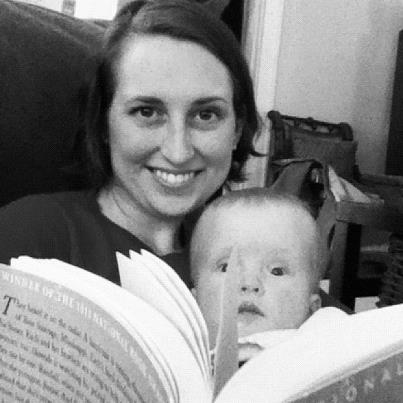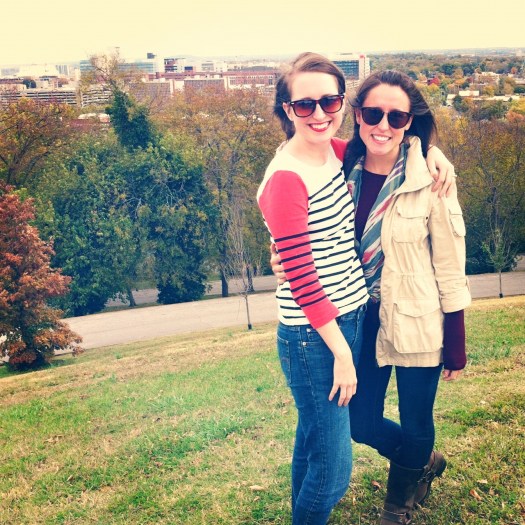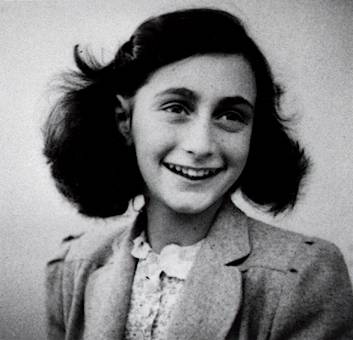 One of the new and exciting developments in my new life in Little Rock is that I’ve joined a book club. I’ve wanted to join a book club for years, and I’m so excited to have finally found one. As I discovered taking my free grad classes in English while working at The College, I believe sitting around talking about books is one of my most favorite activities in all the world.
One of the new and exciting developments in my new life in Little Rock is that I’ve joined a book club. I’ve wanted to join a book club for years, and I’m so excited to have finally found one. As I discovered taking my free grad classes in English while working at The College, I believe sitting around talking about books is one of my most favorite activities in all the world.
The first book I’m reading with this book club is Eat, Pray, Love by Elizabeth Gilbert. To be honest, I did not expect to like this book. I’m not even really sure why, because, as you can tell by the subject matter I most often write about, Eating and Prayer (or God) are two of my favorite things to think about, talk about, and write about. I think I maybe expected Elizabeth Gilbert to be more insufferable? I mean, someone who gets paid an advance to travel around the world eating amazing food in Italy and studying Yoga in India has to be a little insufferable, right?
But, just like my discovery with Julie and Julia, namely, that I AM Julie, I’m finding I really identify with Elizabeth Gilbert. I feel like her neuroses are my neuroses, like her passions are my passions, like her search is my search. And then I got to Chapter 64, and I literally read the whole thing out loud to Jon, asking him if, perhaps, it sounded familiar to him.
Gilbert, like many writers, is a talker. And at this point in the story, several weeks into her time studying Yoga at an Ashram in India, she’s decided that maybe she should try to be That Quiet Girl, because obviously, the truly spiritual and devout are the mystically silent types.
Oh boy, oh boy, have I been here. In the beginning of my time in Charleston, I found myself part of a Christian Bible study group made up of women married to doctors and residents and medical students. And, with a few exceptions, I did NOT fit in with these women. For one thing, they were all a good 5 years older than I, and most were stay-at-home moms with multiple children whom they often got together for play-groups. Even if I hadn’t had a day-job, what was I going to do, bring my dog and have her lick their children in the face? How was I ever going to make it to their book club on weekday afternoons, either?
For another, they were Good Christian Wives of the Proverbs 31 Woman variety. I, on the other hand, am clearly a crazed Feminist harpy who must, to their minds, make her man miserable. I remember quite vividly one exchange, in which another member of the group confessed that her husband had taken to making strange statements like, “You know, WE should really clean these floors” or “You know, WE should really clean up the kitchen.” This young wife was worried about these statements, and unsure of what to do. The general consensus from the rest of the group was that, obviously, she should clean the floors and tidy up the kitchen, because these things were bothering her husband, and she should serve him by taking care of these things. My response? “Have you asked him what he means when he says these things? Does he know where you keep the broom? Did you hide the cleaning supplies? This all sounds awfully passive aggressive of him and you should tell him so! If the floor really bugs him, maybe he should clean it!” They looked at me like I’d sprouted a second head. Apparently, my usual approach of asking my husband what he means when he says strange things and then sharing with him how those things make me feel is considered un-Proverbs-31 or something.
I’m not even sure what it was that caused me to leave Bible Study in tears another night and come home and sob to Jon about how maybe I was just the wrong kind of person for that group. I’m pretty sure it had something to do with another member of the group riding me really hard about wanting to reschedule an event when I’d just lost my job that week. But I did, I came home and sobbed and told Jon how I felt like none of these women liked me, and how I felt like I couldn’t be myself around them, and how I felt like I was constantly judged. I asked him if he thought I needed to be some sort of Good Christian Wife. He hugged me and held me and assured me that I am loved for who I am, and that he’d really be upset if I turned into some sort of subservient wifebot.
Later, I confessed to a fellow member of the group that I was thinking of leaving the group because I just didn’t fit in. She invited me over to her house for lunch. Little did I know that this lunch was a pretext for giving me a speech about how Jesus wanted to make me a quieter, gentler, meeker, more wifely sort of person. Basically, she thought Jesus wanted to give me a lobotomy. I’m pretty sure I was quiet and meek that day, but it’s because I was stunned into silence. Here I was hoping this woman had invited me over to let me know I am liked for who I am, and she basically tells me I need to completely change my personality in order to really be a Christian. I didn’t go back to the group after that.
So, back to Elizabeth Gilbert in India—she’s decided that she needs to try to become That Quiet Girl, but on the very day she makes this decision, she receives a new assignment at her Ashram to be a kind of hostess for visiting groups, a job that actually requires her to be a regular Chatty Cathy. In fact, she realizes, her personality is basically required for this job. Gilbert writes:
“If there is one holy truth of this Yoga [it is that] God dwells within you as you yourself, exactly the way you are. God isn’t interested in watching you enact some performance of personality in order to comply with some crackpot notion you have about how a spiritual person behaves. We all seem to get this idea that, in order to be sacred, we have to make some massive, dramatic change of character, that we have to renounce our individuality…To know God, you need only to renounce one thing—your sense of division from God. Otherwise, just stay as you were made, within your natural character.” (192)
Yes! My personality is not some sort of flaw. Neither is yours! God, if God’s creation is any indication, is a fan of variety. I can only imagine that there are so many species of birds and plants and animals and even varieties of people because our creative God delighted in creating them. God desires an intimate relationship with ME, as I was made to be, not as I imagine God might like me better, because the truth is, God couldn’t love me any deeper. And rather than break my back (and my heart) trying to conform to some narrow idea of what a godly woman looks like, I should instead look for ways my unique traits can be used in the service and blessing of others and the world, just like Gilbert found a role as a hostess at the Ashram.
Still, Gilbert does point out that there are ways to grow into a better, more spiritual person while still being accepting of who she was created to be. Part of it rang especially true to me:
“Or here’s a radical concept—maybe I can stop interrupting others when they are speaking. Because no matter how creatively I try to look at my habit of interrupting, I can’t find another way to see it than this: ‘I believe that what I am saying is more important than what you are saying.’ And I can’t find another way to see that than: ‘I believe that I am more important than you.’ And that must end.” (193)
Not interrupting others is something I’ve been working on for a while. It’s something I’ll likely be working on for a long while to come. It’s a way I can hone the shape of me while still respecting the basic outlines of my design. It’s like sanding my rougher edges without obliterating the sculpture altogether, because I’m a work of divine art.
I look forward to finishing Gilbert’s book, and I can’t wait to discuss it in book club next week. Here’s hoping they like me the way I am. I’ll do my best not to interrupt anyone during the discussion.



















